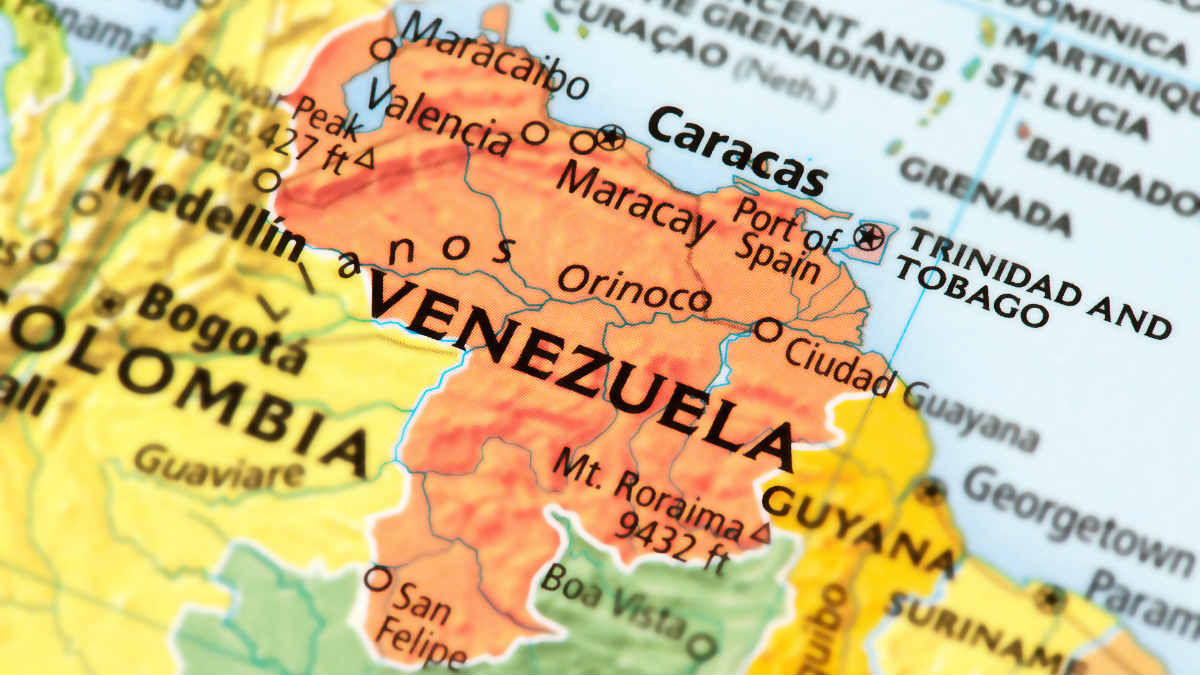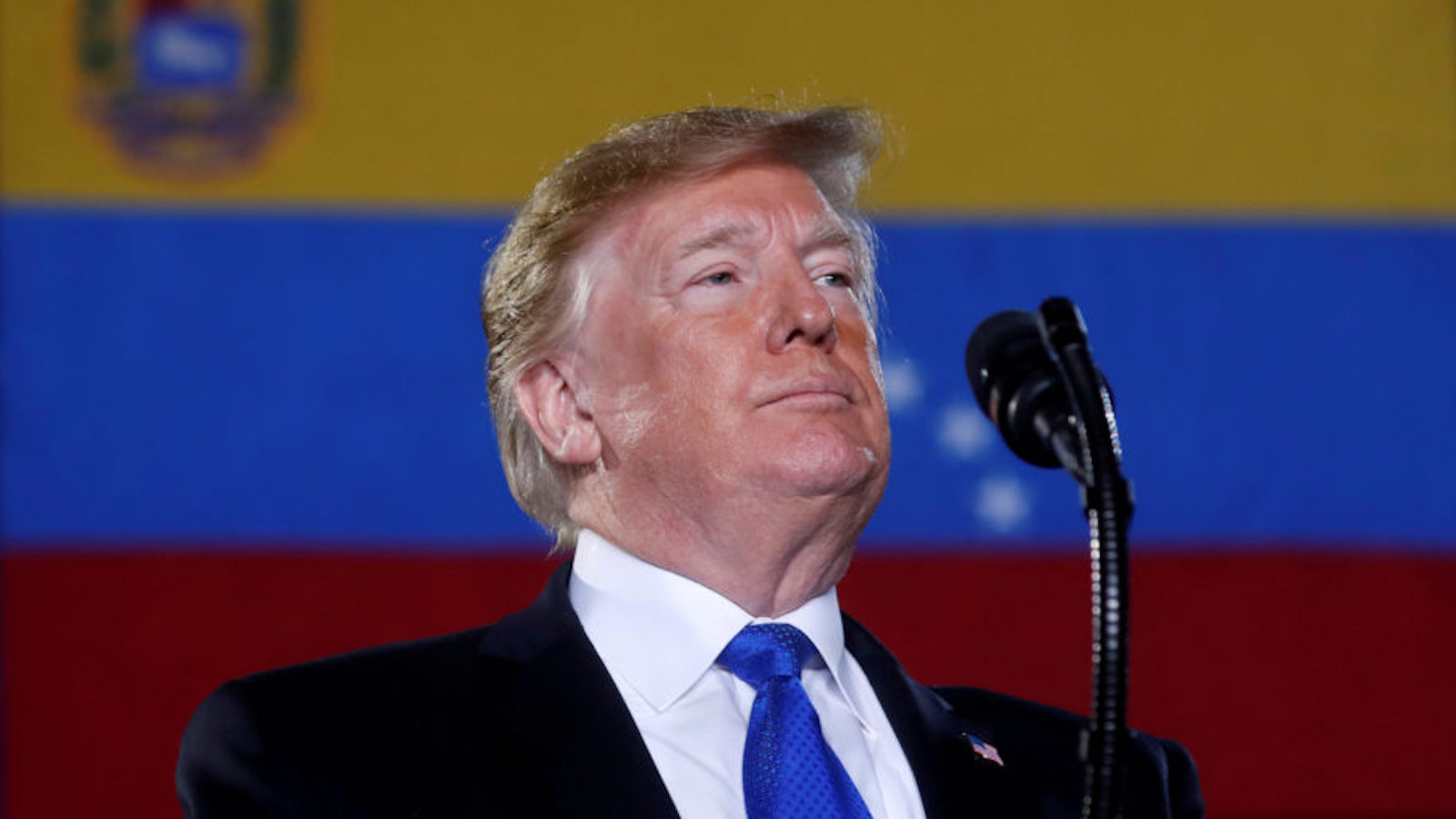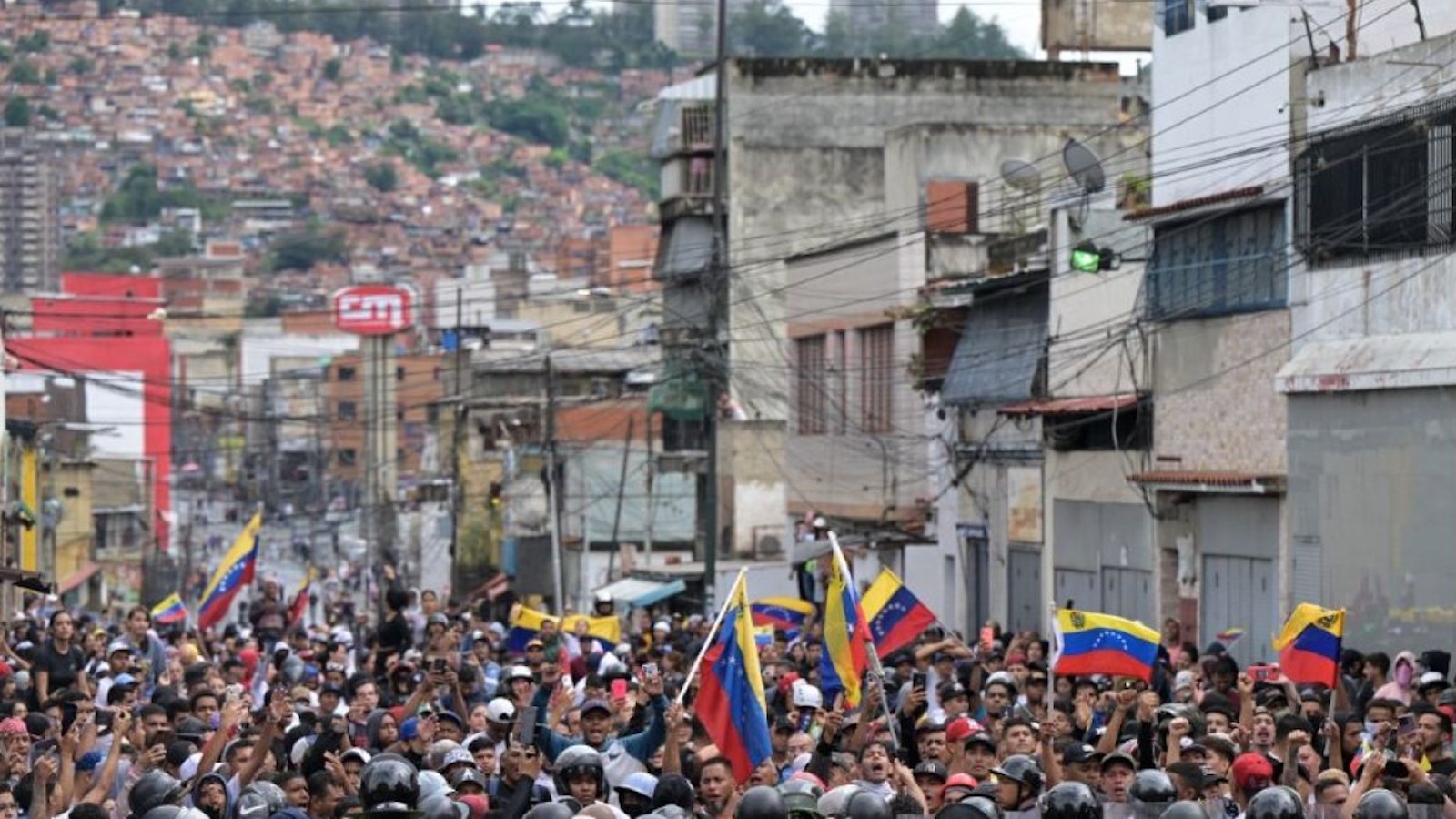
Is It Time for Sanctions on Maduro?
The last couple of weeks have been difficult for the already beleaguered people of Venezuela, as their socialist president, Nicolas Maduro, has moved closer to full dictatorial control of their country. In response, the Trump administration has reportedly been considering levying a crippling sanction against the importation of Venezuela’s number one export — oil.
What Maduro has done in Venezuela can reasonably be called a coup — a dismantling of the last vestiges of restraints on his power under that nation’s constitution. Taking a page out of his mentor Hugo Chavez’s book, he summoned a national referendum with the goal of neutering the country’s legislative body, which is controlled by lawmakers opposed to his rule. Knowing that the opposition vote would be met with violence and that the vote was being rigged, Venezuelans protested by staying home.
In reality, Maduro — like Chavez before him — had relatively few limits on his power already. But like a modern Augustus Caesar, Chavez tried to maintain a cloak of legitimacy, leaving a shell of Venezuela’s constitution intact. Maduro, having inherited the worst of the economic catastrophe wrought by Chavismo, has responded by doubling down on socialist economic policies, enforced by an increasingly blatant totalitarian police state.
Polls clearly show that a large majority of Venezuelans would eagerly vote out Maduro if legitimate elections were held, but the chances that next year’s scheduled presidential election will occur seem increasingly remote.
Besides shutting down electoral means of resistance, Maduro has imprisoned leading opposition figures and has made it dangerous to be a known critic of the government. With help from Cuba, Venezuelans’ social media feeds are monitored for anti-government content. Roving gangs of armed thugs known as colectivos inflict brutal beatings and public humiliations on people who do not profess adequate loyalty to the socialist revolution.
Any hope that the police and military apparatus in Venezuela might obey the will of the people seems increasingly far-fetched for now. As shortages of food and most basic goods continue to afflict average Venezuelans, the government uses its control over the money supply to ensure that the military and its most loyal citizens live better than most.
Enter potential sanctions from the U.S. and perhaps the E.U. and others. Currently, the U.S. has imposed sanctions on individuals within Venezuela, those deemed the most corrupt and most responsible for violations of their citizens’ liberty. As Cato Institute scholar Juan Carlos Hidalgo points out, Venezuela’s leadership is corrupt on a mind-blowing scale — from drug trafficking to straight embezzlement of state-run industry funds. The international community freezing more and more of these individuals’ funds would at least bring at least some pain to Venezuela’s oppressors.
But there has also been discussion of going straight for the jugular — placing sanctions on imports of Venezuelan oil. Proponents of such a tactic say that depriving the Maduro regime of its number one cash cow might help further destabilize it and may cause the loyalty of some of the military to waver once their families, too, start to feel real hunger. But oil sanctions could also accelerate a humanitarian crisis into a full-blown famine.
Because Venezuela became so dependent upon imports under Chavez, the country does not produce enough of many food staples to keep the population fed. The Venezuelan regime has an iron control of the money supply, and although it charges an obscene conversion rate to private companies, those companies have to be able to convert bolivars into dollars to bring in food. Thus, by drastically shrinking the supply of dollars coming in from oil exports, the sanctions could also directly cut off even more of Venezuela’s food.
In addition, such sanctions would also provide fodder for the Maduro government to further delegitimize the opposition in the eyes of the regime’s supporters, by pinning the blame for the country’s hardships on “capitalism” and “American imperialists”. Maduro already does this with reckless abandon, but if our sanctions worsen the already dire food situation, it will add further weight to his harangues.
For decades, U.S. foreign policy has tended to lean on sanctions as a feel-good way to show that we’re against the bad apples of the world. As tempting as it may be to try to simply starve the beast, to throttle Venezuela’s tyrants as directly as possible, one hopes the administration will give a long thought to who will likely bear most of the consequences — Maduro, or the Venezuelan people.
This article originally appeared on Conservative Review.
Free the People publishes opinion-based articles from contributing writers. The opinions and ideas expressed do not always reflect the opinions and ideas that Free the People endorses. We believe in free speech, and in providing a platform for open dialogue. Feel free to leave a comment.



